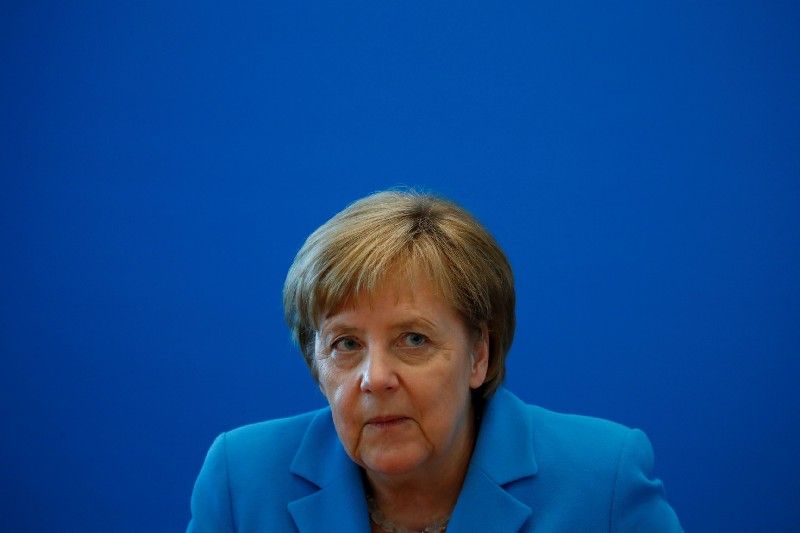Well, German Chancellor Angela Merkel has dodged another bullet. After weeks in which it looked like a split over migrant policy with her conservative alliance partner, the CSU, could bring down her government, Merkel struck a 25th hour deal to tighten Germany’s border with Austria. That puts the issue to rest, for now — but, as my pal Gabe explains, at what cost?
Here’s how we got here: Last month, Interior Minister Horst Seehofer of the Bavaria-based CSU threatened to turn away migrants arriving at Germany’s border without proper documentation, in a direct challenge to Merkel’s open border policy. A formal split between the CSU and the CDU could have undone her government.
But two things worked in her favor. First, EU leaders agreed at a summit last week to a new scheme that aims, however vaguely, to stop more migrants from reaching Europe and to share the costs of housing those who do. Second, Seehofer’s own position became widely unpopular at home — with 67 percent of Germans calling his and the CSU’s actions irresponsible. He was in fact ready to resign as recently as yesterday, before agreeing to a compromise with Merkel that keeps him around.
A big win for Merkel? Here are a few caveats…
- While Merkel has kept her government together (for now), she did so by acquiescing to tighter controls at Germany’s southern border — a move that contradicts her long-standing support for open borders and sets a precedent for other less migrant-friendly governments throughout Europe to do the same.
- The EU-wide deal on migration that gave Merkel a reprieve is in fact quite vague — its reliance on voluntary action by countries to absorb more refugees could quickly run aground on stiffening resistance in many countries, reigniting the issue anew before long.
- Within Germany, the steadily growing appeal of the far-right anti-migrant AfD continues to polarize the country. Seehofer’s bid to outflank the AfD, which swiped a huge chunk of CSU voters in the last election, has failed. Still, the reasons why he tried it at all remain firmly in place.
The takeaway: After 13 years in power, Merkel is nothing if not a survivor. But with each deft escape from political peril, her room for maneuver narrows further. Last night’s concession on open borders was a significant one — it remains to be seen whether her victory was strategic or pyrrhic.
